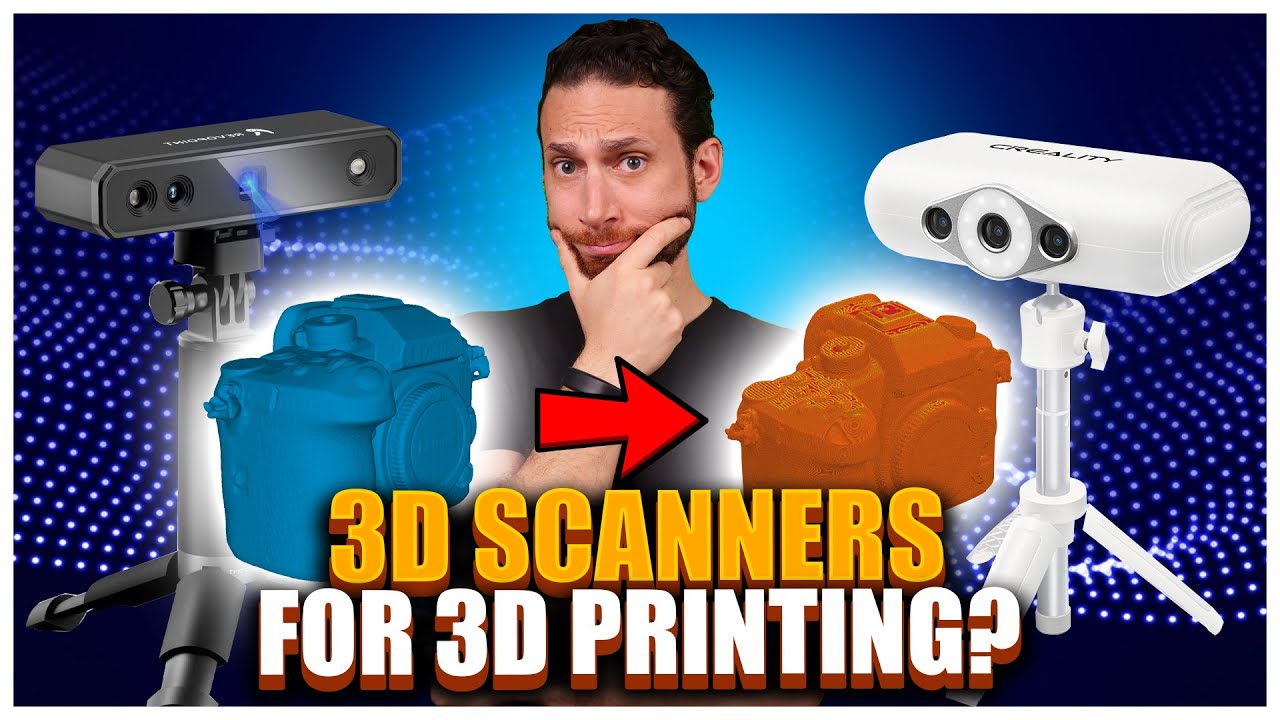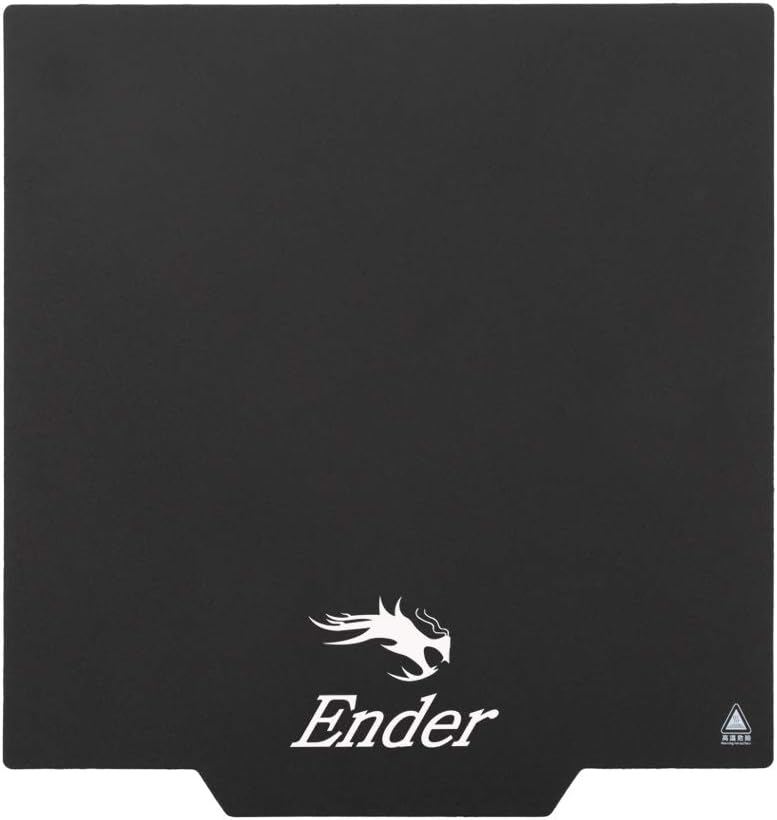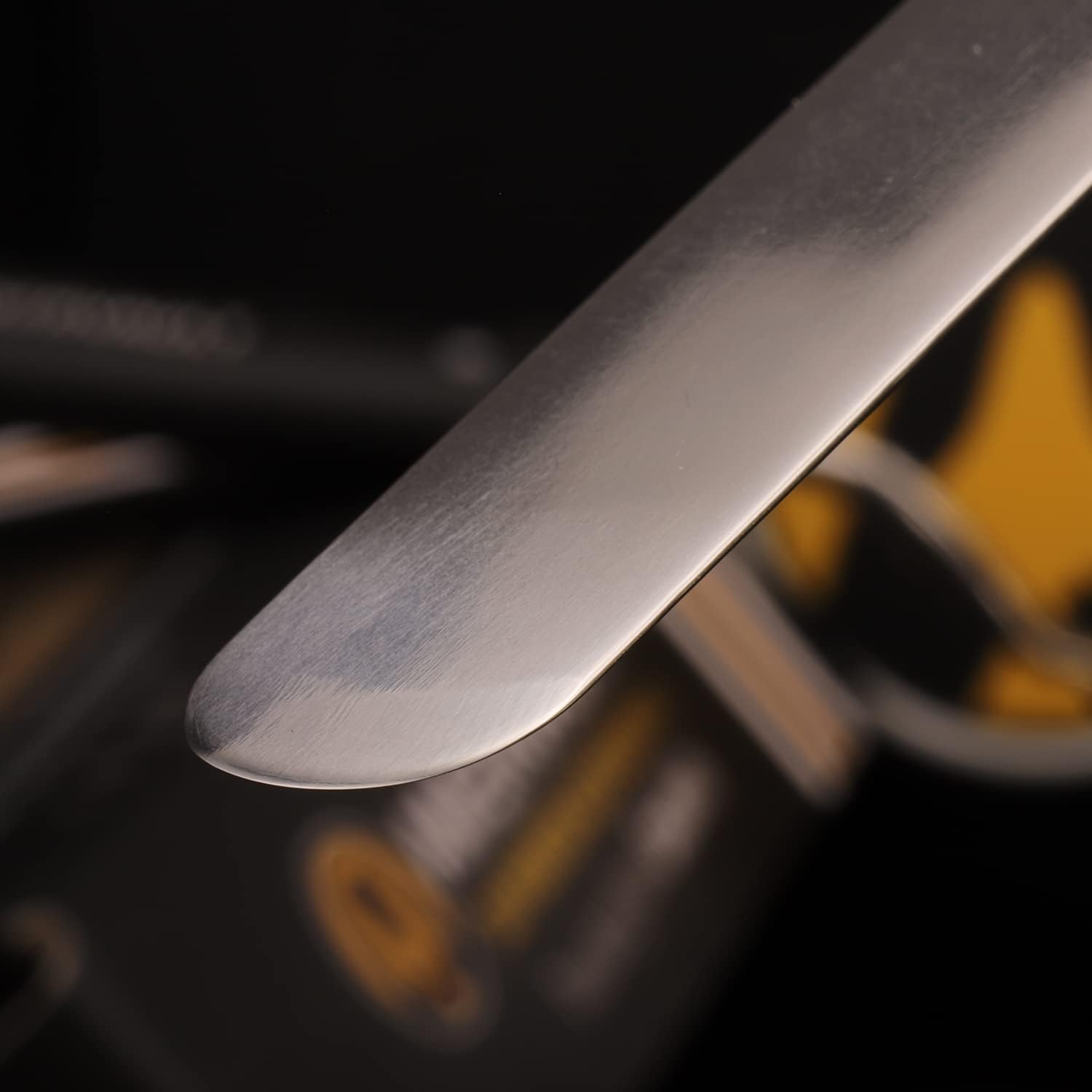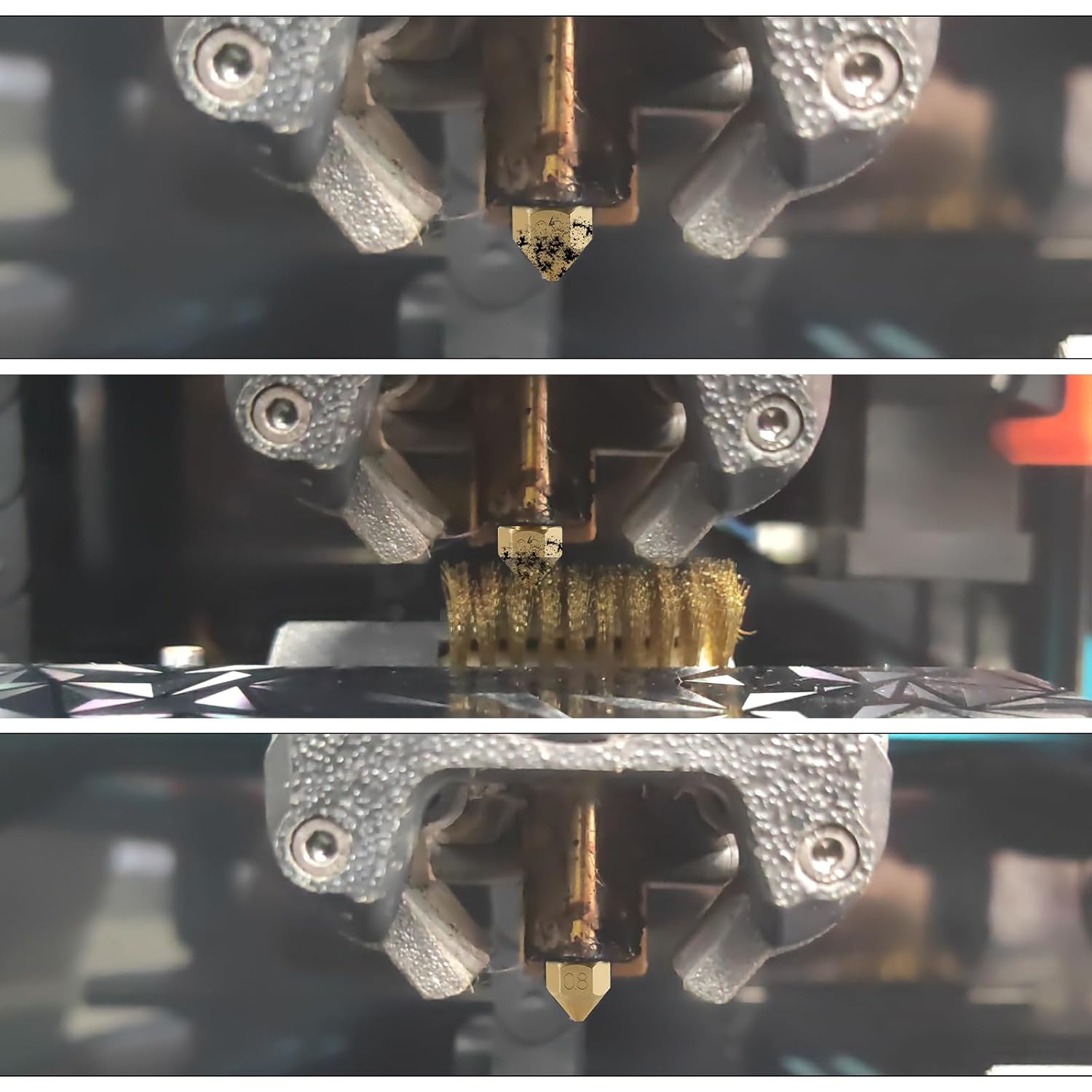Creality Official K2 Plus Combo 3D Printer, Multi Color Printing with CFS 600mm/s High-Speed Full Auto-Leveling Dual Al Camera Next-Gen Direct Drive Extruder Build Volume 13.78x13.78x13.78 inch
$1,349.00 (as of June 19, 2025 23:45 GMT +00:00 - More infoProduct prices and availability are accurate as of the date/time indicated and are subject to change. Any price and availability information displayed on [relevant Amazon Site(s), as applicable] at the time of purchase will apply to the purchase of this product.)The dream of every 3D printing enthusiast is to scan an object in seconds and print it out in an exact replica on your 3D printer. Until recently, this was only possible with commercial scanners that cost tens of thousands of dollars and required tons of training to use properly. But with the emergence of consumer-grade 3D scanners, this dream is now within reach. In this article, we’ll compare three different solutions for at-home scanning and determine which one is the best.
We’ll be testing the Creality CR-Scan Lizard, the Revopoint Mini, and the iPhone 14 Pro Max with Polycam to see how they stack up against each other. We’ll evaluate them based on form factor and ease of use, software, price, and scan results. We’ll also answer the question on everyone’s mind: should you get a 3D scanner? Whether you’re a hobbyist or a professional, this article will give you the information you need to make an informed decision about which 3D scanner is right for you.

$30 off $400+ Anycubic Products with code AC30OFF
Overview of 3D Scanners for 3D Printing
Importance of 3D Scanning in 3D Printing
As 3D printing enthusiasts, we’ve all dreamed of effortlessly scanning an object in the physical world and printing it out with exact precision on our 3D printers. Until recently, this was only possible with commercial scanners that came with a hefty price tag and required extensive training to use. However, with the advent of consumer-grade 3D scanners, this dream is now within reach. But are these scanners any good? In this article, we’ll delve into the world of 3D scanning for 3D printing, exploring the key features to consider and comparing three top contenders to find the best one for your needs.
Key Features to Consider in a 3D Scanner for 3D Printing
When selecting a 3D scanner for 3D printing, there are several essential features to consider. These include form factor and ease of use, software, price, and scan results. A scanner that is portable, lightweight, and easy to use is ideal for at-home scanning. The software should be user-friendly, efficient, and capable of noise removal and alignment. The price of the scanner is also a significant factor, as it can range from a few hundred to several thousand dollars. Lastly, the quality of the scan results is crucial, as it directly affects the accuracy of the printed model.
Our Top Picks for 3D Scanners for 3D Printing
Creality CR-Scan Lizard
The Creality CR-Scan Lizard is a popular option for at-home scanning. Backed by a successful Kickstarter campaign, this scanner boasts 0.05 millimeter accuracy, the ability to scan black objects, markerless scanning, and easy-to-use software. However, our experience with the CR-Scan Lizard has been marred by issues with the software, which can be frustrating to use and lacks clear documentation.
Revopoint Mini
The Revopoint Mini is a lightweight, portable scanner that weighs in at only 160 grams. With 0.02 millimeter accuracy, industrial blue light, high-speed scanning, and a convenient form factor, this scanner is ideal for at-home scanning. The Revopoint Mini’s software is user-friendly and efficient, making it a pleasure to use.
iPhone 14 Pro Max with Polycam
The iPhone 14 Pro Max with Polycam is not a traditional 3D scanner, but with the recent advancements in mobile phones and LiDAR technology, it’s an attractive option for at-home scanning. The iPhone 14 Pro Max provides a convenient, always-in-your-pocket user experience, making it easy to scan objects on the go.
Form Factor and Ease of Use Comparison
Portability and Design
When it comes to portability and design, the Revopoint Mini is the clear winner. Weighing in at only 160 grams, this scanner is effortless to carry around and fits nicely into your pocket, even with the included tripod and cable. In contrast, the Creality CR-Scan Lizard is heavy and bulky, requiring a separate power cable and making it a hassle to carry around.
User Experience and Interface
The Revopoint Mini’s user experience is seamless, with a convenient button on the back that allows you to start scanning easily. The software is also easy to use, making it a pleasure to scan objects. The Creality CR-Scan Lizard’s software, on the other hand, can be frustrating to use and lacks clear documentation, making it a less enjoyable experience.
Winner: Revopoint Mini
The Revopoint Mini takes the cake when it comes to form factor and ease of use. Its lightweight design, convenient button, and user-friendly software make it an ideal choice for at-home scanning.
$30 off $400+ Anycubic Products with code AC30OFF
Software Comparison
Ease of Use
The Revopoint Mini’s software is a breeze to use, with a simple, intuitive interface that makes scanning a pleasure. The Creality CR-Scan Lizard’s software, on the other hand, can be frustrating to use, with unclear menus and lack of documentation.
Noise Removal and Alignment
The Revopoint Mini’s software excels in noise removal and alignment, producing high-quality scans with ease. The Creality CR-Scan Lizard’s software, however, struggles with noise removal and alignment, resulting in lower-quality scans.
Winner: Revopoint Mini
The Revopoint Mini’s software is the clear winner, providing a seamless, user-friendly experience that produces high-quality scans.
Price Comparison
Creality CR-Scan Lizard
The Creality CR-Scan Lizard is available for $600, making it an affordable option for at-home scanning.
Revopoint Mini
The Revopoint Mini is priced at $799, making it a more significant investment, but one that’s well worth it for the quality of the scans and ease of use.
iPhone 14 Pro Max with Polycam
The iPhone 14 Pro Max with Polycam is a unique option, as you likely already own a phone. The Polycam app costs $200, making it a more affordable option, but one that’s limited by the phone’s capabilities.
Value for Money
While the Creality CR-Scan Lizard is the most affordable option, the Revopoint Mini provides the best value for money, considering its high-quality scans and ease of use.
Scan Results Comparison
Quality of 3D Models
The Revopoint Mini produces high-quality 3D models with fine detail, making it an ideal choice for 3D printing.
Level of Detail
The Revopoint Mini’s scans capture a high level of detail, making it possible to print intricate models with accuracy.
Winner: Revopoint Mini
The Revopoint Mini is the clear winner when it comes to scan results, producing high-quality 3D models with fine detail and a high level of accuracy.
Special Considerations
Onshape CAD Software
Onshape is a cloud-based CAD software that allows for easy designing and upgrading on any device, including iPhone, with no intention of making money from creators. This software is ideal for hobbyists and professionals alike.
Type of Scanning Needed
Before investing in a 3D scanner, it’s essential to consider the type of scanning you need. If you’re a hobbyist, free software like Onshape and available models online may suffice. However, for those with specific use cases, such as custom orthotics, a high-quality scanner like the Revopoint Mini is a valuable investment.
Cost-Benefit Analysis
The cost of 3D scanners is expected to decrease in the next few years, making them more accessible to consumers. However, for those who need high-quality scans now, the Revopoint Mini is a worthwhile investment.
Who Needs a 3D Scanner for 3D Printing?
Hobbyists
For hobbyists, a 3D scanner can be a valuable tool for creating unique models and designs. However, free software like Onshape and available models online may suffice for casual use.
Professional Users
For professional users, a high-quality 3D scanner like the Revopoint Mini is essential for producing accurate models and designs.
Specific Use Cases
For those with specific use cases, such as custom orthotics, a high-quality 3D scanner is a valuable investment.
Conclusion
Summary of Our Findings
In conclusion, the Revopoint Mini is the clear winner in our comparison of 3D scanners for 3D printing. Its lightweight design, user-friendly software, and high-quality scans make it an ideal choice for at-home scanning.
Final Verdict
If you’re in the market for a 3D scanner for 3D printing, the Revopoint Mini is the best option. Its value for money, quality of scans, and ease of use make it a worthwhile investment.
Future of 3D Scanning for 3D Printing
The future of 3D scanning for 3D printing looks bright, with prices expected to decrease and technology advancing. However, for now, the Revopoint Mini is the top choice for those who need high-quality scans.
FAQs
What is the best 3D scanner for 3D printing?
The Revopoint Mini is the best 3D scanner for 3D printing, offering high-quality scans, a user-friendly interface, and a portable design.
Do I need a 3D scanner for 3D printing?
If you’re a serious hobbyist or professional, a 3D scanner can be a valuable tool for creating unique models and designs. However, for casual use, free software and available models online may suffice.
What are the benefits of using a 3D scanner for 3D printing?
Using a 3D scanner for 3D printing allows for accurate models, easy design iteration, and the ability to create custom designs with precision.
$30 off $400+ Anycubic Products with code AC30OFF








